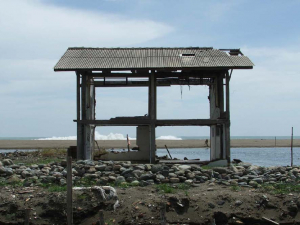Doctoral Students Present Research at International Industrial Organization Conference

Four Duke Economics doctoral candidates recently presented research at the 16th Annual International Industrial Organization Conference (IIOC) in Indianapolis, Ind. Organized by the Industrial Organization Society, the IIOC features research on antitrust policy, regulatory policy, and competition and market power in real-world markets.
Paul Eliason and Benjamin Heebsh
“How Ownership Changes Affect Behavior and Outcomes: Evidence from Dialysis Facility Acquisitions” (with Ryan McDevitt and James R. Roberts)
Eliason and Heebsh presented work on acquisitions in the dialysis industry and their effect on firm treatment decisions and patient outcomes. Using data from the United States Renal Data System, they show that independent facilities which are acquired by chain facilities change behavior in many ways, notably increasing their use of lucrative drugs and shifting their labor to lower-skill lower-cost alternatives. These changes in behavior coincide with worse outcomes for patients across many measures and higher payments from Medicare.
Andrey Ordin
“Bidding and Drilling Under Uncertainty: An Empirical Analysis of Contingent Payment Auctions” (with Vivek Bhattacharya and James R. Roberts)
Ordin presented work on auctions for oil tracts and the effect of their design on well drilling and oil extraction. Using the data on state-run land leases in New Mexico, the paper shows how different payment schemes affect the state revenues as well as post-auction economic activity. The authors find that a simple adjustment to the historically used royalty rates can improve the revenues by 10 percent, though at the cost of increased sensitivity to oil price shocks.
Andrew Steck
“Industry Dynamics with Learning Externalities: Hydraulic Fracturing”
Steck presented his job market paper, in which he models the interaction between dynamic decision-making and social learning about new technologies in determining industry learning and development. Learning about new technologies is an important factor in economic growth, but, as Steck demonstrates through the empirical setting of the North Dakota Bakken shale, its presence as an externality can lead to a free-riding dynamic in scenarios with high uncertainty.




